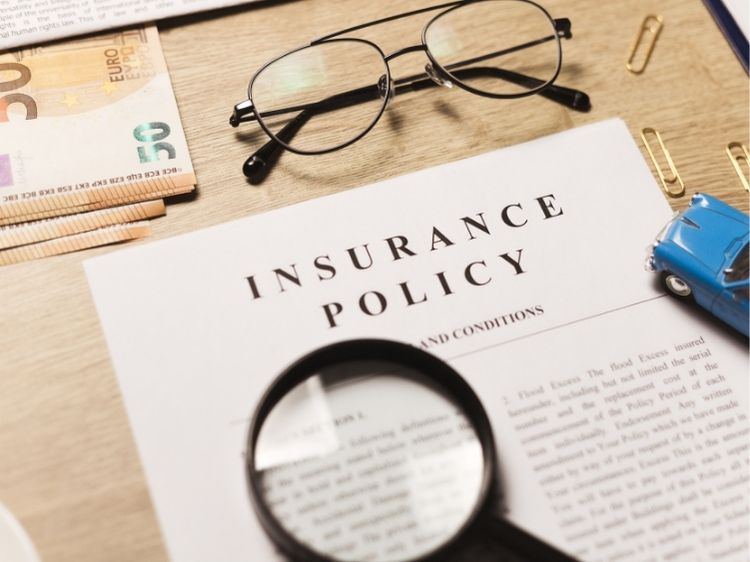What Is Homeowners Insurance?
Owning a home is a significant investment, and homeowners insurance acts as your financial safety net. Imagine your home suffers damage from a storm, a fire, or even a burglary—homeowners insurance covers these situations, saving you from potentially massive out-of-pocket expenses. This guide will break down everything you need to know about homeowners insurance, including how it works, what it covers, and tips for finding the right policy.
What Does Homeowners Insurance Cover?
Understanding what’s covered under homeowners insurance can give you peace of mind. Here’s a breakdown:
- Dwelling Protection: Covers damages to the physical structure of your home, including walls, roof, and floors.
- Personal Property: Reimburses you for belongings lost or damaged due to covered events like theft or fire.
- Liability Coverage: Protects you if someone is injured on your property and files a lawsuit.
- Additional Living Expenses (ALE): Covers costs if you need temporary housing due to home repairs.
Why Is Homeowners Insurance Important?
Think of homeowners insurance as a buffer against financial loss. It’s essential for several reasons:
- Protection from Natural Disasters: While it may not cover every natural event, it generally includes protection from common disasters like fire, windstorms, and hail.
- Financial Security: Rebuilding a home from scratch or replacing belongings can be costly. Insurance lessens that burden.
- Mortgage Requirement: Most mortgage lenders require you to have insurance to secure their investment.
- Personal Liability: With liability coverage, you’re protected from potential lawsuits if someone is injured on your property.
Types of Homeowners Insurance Policies
Did you know there are various types of homeowners insurance policies, each tailored to different coverage needs? Here’s a snapshot of the primary types:
- HO-1 (Basic Policy): Covers a limited number of perils like fire, theft, and lightning.
- HO-2 (Broad Policy): Adds additional perils like falling objects and accidental overflow of water.
- HO-3 (Special Policy): The most popular type, offering comprehensive coverage for your home.
- HO-4 (Renters Insurance): Protects personal property but is designed for tenants, not homeowners.
- HO-5 (Comprehensive Policy): Offers the highest level of protection, covering almost all perils unless specifically excluded.
- HO-6 (Condo Insurance): Specifically for condo owners, covering interior structures and personal property.
- HO-7 (Mobile Home Insurance): A policy tailored for mobile and manufactured homes.
How Much Homeowners Insurance Do You Need?
One size does not fit all with homeowners insurance. To figure out the right coverage, consider the following:
- Home Replacement Cost: Calculate how much it would cost to rebuild your home entirely.
- Personal Belongings: Take inventory of your possessions and their value.
- Personal Liability: Think about potential liabilities, especially if you have visitors frequently.
- Additional Coverage: Consider flood or earthquake insurance if you live in a high-risk area (these aren’t usually covered by standard policies).
Factors That Affect Homeowners Insurance Rates
Why do premiums vary so much? It’s because insurers look at various factors, including:
- Location: Homes in high-risk areas for floods or fires will have higher premiums.
- Home Value and Age: Higher-value homes or older properties may cost more to insure.
- Deductible Choice: A higher deductible can lower your premium but means you’ll pay more out-of-pocket for claims.
- Claims History: A record of frequent claims can make your insurance pricier.
How to Choose the Right Homeowners Insurance
Finding the best homeowners insurance isn’t just about price. Here’s a quick checklist:
- Compare Quotes: Look at quotes from multiple insurers for a sense of pricing.
- Check Coverage Limits: Ensure the policy limits align with your needs.
- Understand Exclusions: Read the fine print for exclusions on coverage.
- Ask About Discounts: Many insurers offer discounts for security systems, smoke detectors, or bundling with other policies.
- Look at the Insurer’s Reputation: Customer service is key, especially if you need to file a claim.
Ways to Save on Homeowners Insurance
Keeping premiums affordable is possible with a few practical steps:
- Bundle Policies: Combine your homeowners insurance with other policies, like auto insurance.
- Increase Deductible: A higher deductible reduces your premium (just ensure it’s manageable).
- Home Improvements: Installing safety features like smoke alarms and security systems can lead to discounts.
- Shop Around Annually: Compare rates from different insurers each year to see if you’re getting the best deal.
Frequently Asked Questions
Is homeowners insurance mandatory?
While it’s not required by law, homeowners insurance is often mandatory if you have a mortgage. Lenders want to ensure their investment is protected.
Does homeowners insurance cover all natural disasters?
No, standard policies typically exclude floods and earthquakes. If you live in a high-risk area for these, you’ll need separate policies.
Can I change my homeowners insurance policy?
Yes, you can switch providers at any time. Just check if there are cancellation fees and ensure your new policy starts before canceling the old one.
How much personal liability coverage should I have?
Many policies start at $100,000, but experts recommend at least $300,000. It depends on your personal risk level and assets.
What happens if I miss a payment?
Most insurers offer a grace period, but missing payments could lead to policy cancellation, leaving you uninsured.
Conclusion
Homeowners insurance isn’t just a box to check off—it’s an investment in the security of your home and finances. From protecting against natural disasters to covering personal belongings, a well-chosen policy offers peace of mind. Remember, shopping around, understanding what’s covered, and considering add-ons can help you get the best protection tailored to your needs. Taking the time to choose wisely can save you from headaches and potential financial loss down the road.
Authoritative Sources:
- National Association of Insurance Commissioners: www.naic.org
- Insurance Information Institute: www.iii.org
- U.S. Department of Housing and Urban Development: www.hud.gov

